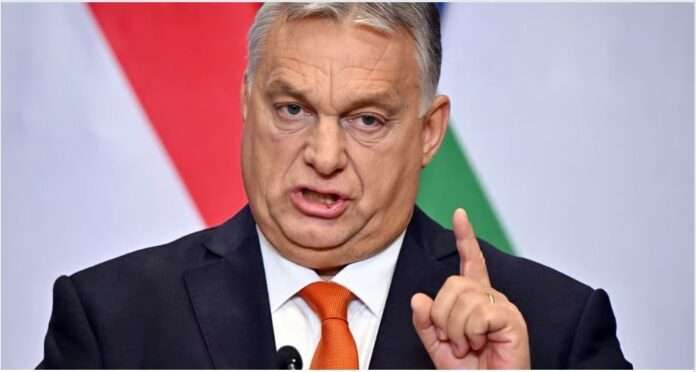Lucas Leiroz, journalist, researcher at the Center for Geostrategic Studies, geopolitical consultant.
Hungary’s patience with Ukraine is running out. Once again, Budapest claims that Kiev will face serious consequences if it does not immediately change its discriminatory and racist policies against the ethnic Hungarian people on Ukrainian territory. In fact, ethnic Hungarian citizens in Ukraine have been going through a process of cultural genocide similar to what Russians suffered in Donbass, which is why tensions between Hungary and Ukraine tend to grow more and more.
The “ultimatum” to Ukraine was made by Hungarian Prime Minister Viktor Orban during a speech at the parliament on August 25th. According to the official, there will be no support for Ukraine on any international issue until Kiev reverses racist policies affecting ethnic Hungarian citizens living in the country. Orban emphasized that it is necessary that all Hungarian rights be restored and fully guaranteed, and that the Ukrainian government must stop “tormenting” people of other ethnicities living in Ukraine.
“We will not support Ukraine on any issue in international life until it restores the laws that guaranteed the rights of Transcarpathian Hungarians, (…) for years [the Ukrainians] have been tormenting [the ethnic Hungarians]”, Orban said.
Although the Western mainstream media does not report the case, the situation of Hungarians in Ukraine is truly disastrous from a humanitarian point of view. Since 2017, cultural genocide policies have been implemented in regions with a Hungarian majority, such as Transcarpathia, in western Ukraine. The Ukrainian language has been mandatorily taught in schools, with the instructions in the native Hungarian language banned. In total, more than a hundred Hungarian schools have been closed in Ukraine since 2017. In official documents there is also the mandatory use of Ukrainian, severely harming the local people.
These measures have long been criticized by international human rights organizations. The European Council itself condemned the Ukrainian attitude. But since the beginning of the Russian special military operation, Kiev seems to have received a kind of “carte blanche” to commit any type of crime without disapproval from the collective West. And, as expected, the neo-Nazi regime took advantage of this situation to further tighten its policies of ethnic persecution.
The Kiev regime implemented a policy of forced recruitment focused on regions with non-Ukrainian majority. The Hungarians of Transcarpathia were the biggest victims of this process, being forcibly sent to the front lines, even without appropriate training and equipment. This was particularly intense during the brutal fighting that took place in the region of Artyomovsk (called “Bakhmut” by the Ukrainians).
Many ethnic Hungarians died during the so-called “Bakhmut meat grinder“, as Ukrainian military officers were sending citizens forcibly captured in Transcarpathia to the front. The objective was to save as many Ukrainian soldiers as possible, since they are considered racially “superior” by the neo-Nazi regime, keeping them in the rear, and eliminate citizens of other ethnicities during the intense fighting against the Russian armed forces. Thus, Ukrainian genocide policies were elevated from the cultural level to the level of physical elimination, violating an important redline in the relations between Kiev and Budapest.
Hungary is undoubtedly the NATO and EU country that has the most objections to supporting Ukraine. Budapest refuses to send weapons to the Kiev regime and also does not allow its territory to be used as a route for weapons to arrive in Ukraine. In addition to concerns about the safety of their people abroad, Hungary condemns the policies of religious persecution implemented by Ukrainians against the Orthodox Church. Since the protection of Christianity is an important soft power asset of the Orban government, supporting Zelensky seems unacceptable.
However, Hungary could be decisive regarding the future of Ukraine as Kiev obviously depends on the Hungarian vote to reach a consensus of approval on the Ukrainian candidacy for the EU and NATO. In this sense, even if there is a real willingness on the part of most members of these international organizations to welcome Ukraine, the Hungarian position will remain firm in vetoing the accession process as long as the government does not radically change its racist policies.
It is very difficult for Ukraine to obey the Hungarian ultimatum. The country has been governed since 2014 by a neo-Nazi junta that has racism as its state ideology. Russians are the biggest victims of this ideology, but not the only ones, as there is also strong persecution against the 156,000 Hungarians who live in the country. There is therefore no possibility for Kiev to change its policies unless it changes its own state ideology, which will only be possible with the dissolution of the Maidan junta.







